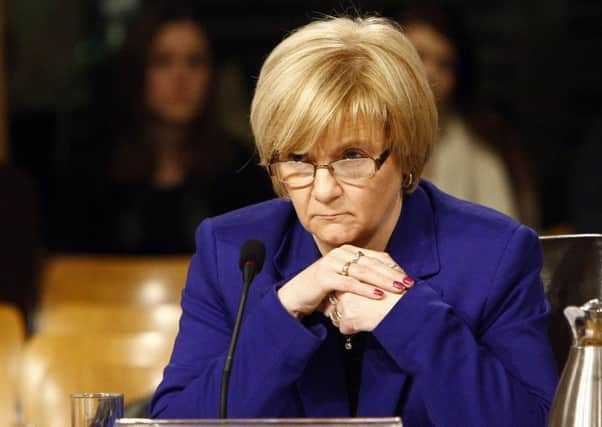Council chiefs say devolving powers is only way to counter era of austerity


It comes as MSPs today unveil plans for a Holyrood inquiry into the impact of spending reductions which have already seen widespread lay-offs. Council leaders say they should have power to levy business rates, a tourism tax and be handed control over air passenger duty to ease the impact.
Thousands of staff have disappeared from town hall workforces around the country, while services to libraries, schools and social care are also cut. Holyrood’s local government committee announced today that it is to investigate how local authorities are dealing with the challenges.
Advertisement
Hide AdAdvertisement
Hide AdBut Jenny Laing, convener of the Scottish Local Government Partnership, the umbrella organisation for Aberdeen, Glasgow, Renfrewshire and South Lanarkshire, warned the worst is yet to come. She said: “Councils have just suffered the biggest budget cuts in a generation and we know far worse is coming, as much as £1bn by 2020.
“Rather than sit idly by and let Nicola Sturgeon pass on her savage cuts without a single, meaningful conversation, we have met the challenge head on in order to protect the people we represent.
“Now we need greater fiscal freedom from the Scottish Government which would allow us to raise money and drive our own economies.
“Tax-raising powers for business rates, a tourism levy and giving us the money from air passenger duty are just three ways we could offset the Tory-style austerity measures being imposed on us by the First Minister and her team.
“Devolve tax-raising powers to councils now so we can shape and drive our own futures.”
Deputy First Minister John Swinney came under fire at his budget last year when he unveiled plans for a 3.5 per cent cut in cash for local councils, amounting to about £350 million. He also announced at the time that councils may be allowed to retain a fixed proportion of income tax receipts. A consultation has since been launched into this and whether local authorities should be able to levy a tax on vacant and derelict land.
Cosla, which represents Scotland’s other local council bodies, warned that services are likely to suffer.
“This emphasises the on-going concerns we have in relation to the future funding for local government and it is fair to say that we have spelt these concerns out to government,” a spokesman said.
Advertisement
Hide AdAdvertisement
Hide Ad“We are in active discussions with government in relation to the Spending review for next year and therefore it would be unfair to pre-empt these discussions. However, there can be no doubt in relation to the financial difficulties councils are facing and therefore there is a reality to the impact of delivering services to local communities.”
Councils in Scotland say they have been hit hard in recent years by the impact of the cuts in funding as UK government austerity cuts are fed through to Scotland’s budget. Scottish local authorities have been prevented from raising the council tax as a result of the freeze which has been in place for the past decade.
The council tax freeze will also end next year, with councils then able to increase the tax by up to 3 per cent a year. First Minister Nicola Sturgeon has said this Ms Sturgeon said this would potentially allow local authorities to raise up to £70m to help fund local services across Scotland.
MSPs on the local government committee will hear how councils are responding to the looming challenges. They will also look at whether other funds for local services should be considered as local government budget.
A Scottish Government spokesman said: “Ministers have already stated a firm commitment to delivering more powers for local communities, and believe that assigning a share of income tax to councils can be an incentive to grow their local economies.
“We have recently devolved a wide power for local authorities to reduce business rates bills, and are currently engaging stakeholders to explore local taxation of vacant, derelict and development land. Furthermore, we have committed more than three-quarters of a billion pounds on city region deals, and are working on delivering more.”